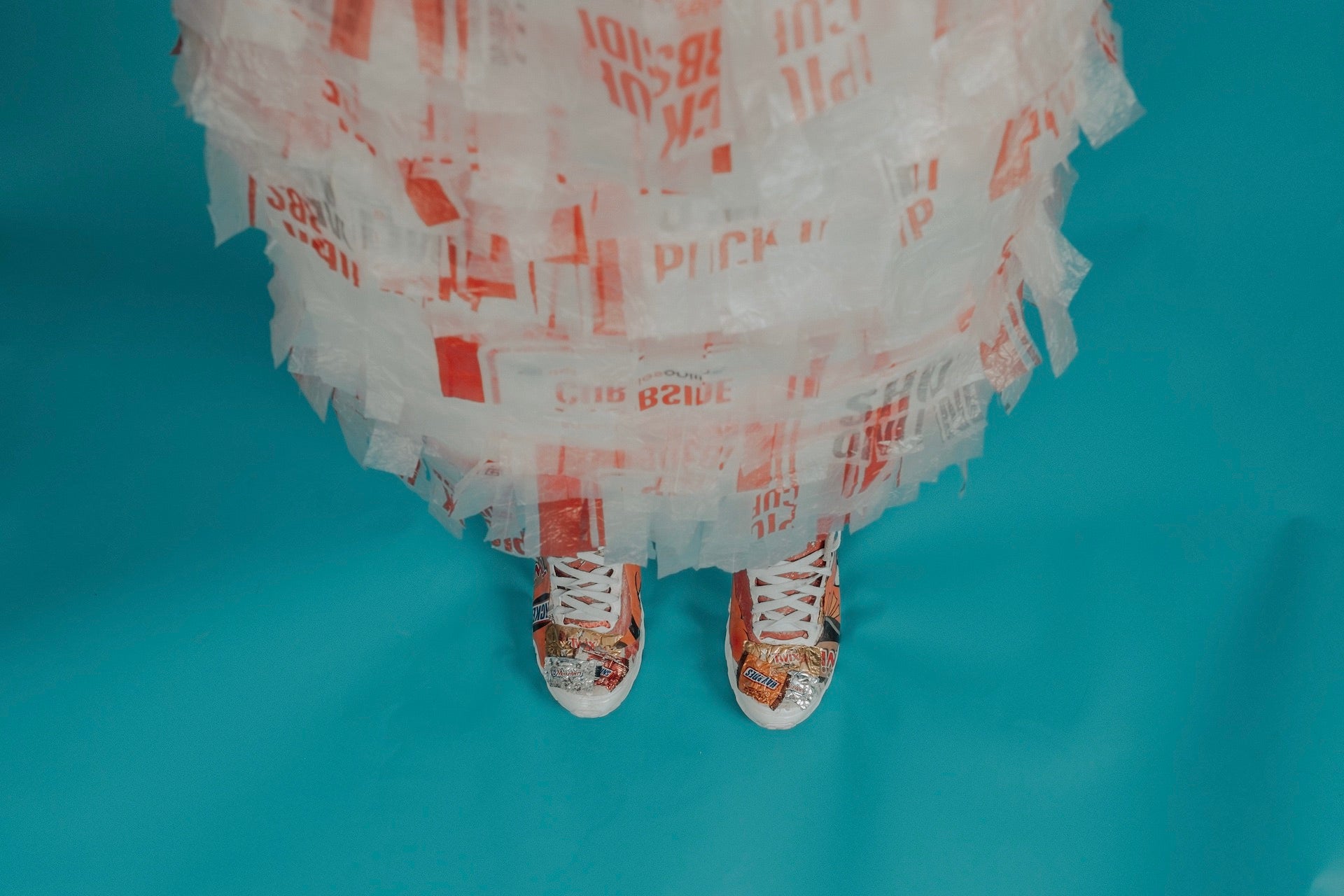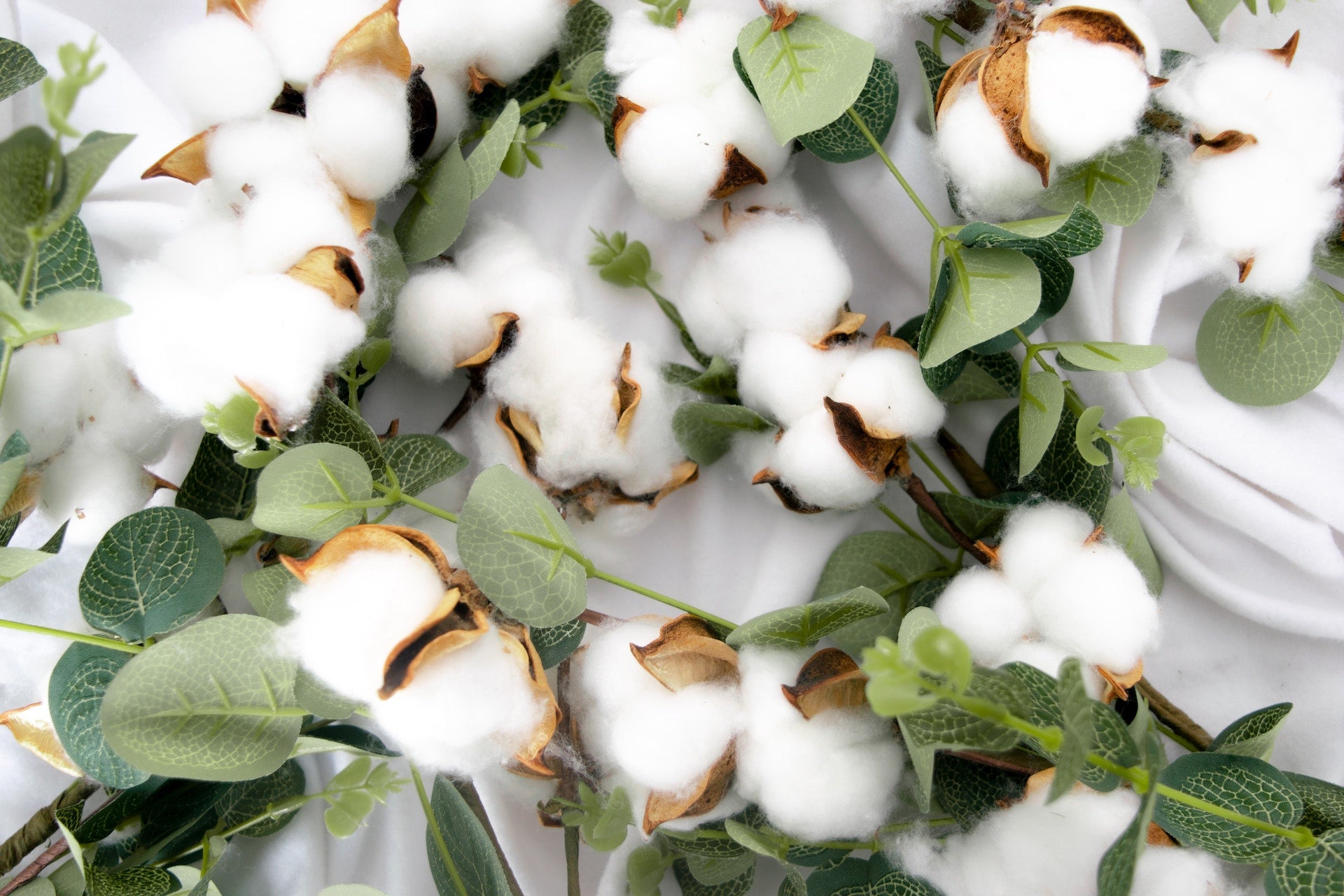Here’s a roundup of some of the finest sustainable fashion stories that hit the news in October.

Textile recycling project 'ReHubs Europe' kicks off
October 3, 2023
After three years of prep work, an interesting outfit enters the textile space.
ReHubs Europe (RE) is an organisation set up to tackle textile recycling within the region. Earlier this month, a kickoff meeting was hosted by the likes of Mango, EURATEX, and 20 starting members.
It’s an association for brands, manufacturers, recyclers, and more, who want to be part of the RE mission: recycle 2.5 million tons of textile waste by 2030. It’s said that to make this dream a reality, 250 industrial projects are needed to cover all types of fibre-to-fibre recycling.
ReHubs Europe is just one of the ways fashion is answering the EU’s incoming textile recycling law, which will require companies to collect and sort textile waste by 2025. Overall, industry-wide implementation continues to lag.
Suffice to say, we’re keen to see how this collaboration will give a much-needed boost to circularity in European fashion.
Circ and Mara Hoffman created a fully recyclable dress
October 17, 2023
Since Mara Hoffman’s moment of revelation in 2015, she’s transformed her label into a sustainability icon.
Earlier this month, the brand unveiled an eye-popping poppy-coloured dress. It’s called The Dress That Changes Everything.
Created with materials company Circ, it’s made from 50% textile waste. And get this, the fabric looks and feels like luxury silk. If you feel like you’ve worn it enough, there’s the option to send it back for recycling. Not just once. But again, and again, and again.
At the moment, the dress is a limited-edition piece. Only 35 units are available, but the brand has committed to replacing all virgin lyocell to Circ’s regenerated lyocell over the next three years.
The investment in this innovation, though worth it, is a hefty one. Shoppers will need to reach deep into their pockets, as it’s currently priced upwards of $1000.
Can a dress change even anything at that hefty price tag? We suppose sustainability has to start somewhere.
Show Fast Fashion the Red Card
October 19, 2023
The sport of football has instigated several initiatives to combat racism over the decades (“Show Racism the Red Card”) but its record on sustainability is relegation-worthy. Fans are becoming disgruntled and voicing their concerns.
This month, three University of Manchester academics, specialising in fashion and textiles, have criticised the government for failing to take action. Lindsay Pressdee, Dr Amy Benstead, and Dr Jo Conlon highlight that, of the one million tonnes of textiles disposed of every year in this country, 300,000 tonnes end up in landfill. Furthermore, they point out that the damage inflicted by discarded sportswear is often overlooked. This is the case even though fans have regularly complained about the financial cost of the kit and the frequency of shirt changes.
They contend that the UK government has fallen behind its peers such as the European Commission, which has proposed an “extended producer responsibility (EPR)” for textiles in the EU. The EPR helps to incentivise producers to design products with low environmental impact at the end of life.
With education being a key part of climate action, ministers also came in for some criticism for abolishing the standalone GCSE in textiles which provided many young people with the ability to mend clothing such as football kits instead of throwing them away.
While a new regulator is on the way, sustainability may not make the shortlist of issues it has to contend with. All the more reason for the public to continue to make its voice heard on this topic.
Alia Bhatt shocks people with her outfit choice
October 19, 2023
Anything that Alia Bhatt does or says is going to attract attention. A leading actress in Bollywood with over 80 million Instagram followers (the most famous Brit in the industry) simply cannot avoid scrutiny of her wardrobe choices. On the basis of just the headline above, what do you think she could wear that would shock people? Leather? Fur? Meat a la Lady Gaga?
Well, it turns out that she got attention for doing something normal: wearing an outfit she’s worn before.
You see, Alia chose to (re-)wear her wedding sari to the National Film Awards held in Delhi, India earlier this month. As pointed out by many, it’s quite normal for Indian women to wear their wedding sari again for special and memorable events. Have you ever re-worn your wedding outfit for another event? Do we need celebrities to turn this into a trend or does this seem like a common sense way to go? Let us know in the comments!
AI for good
October 20, 2023
For the past year, AI has seen constant progress. The ease with which people are able to create content (text and images in the main, although videos are getting easier too) has been good for people willing to experiment. AI has been used in interesting ways in the healthcare sector but what about the health of Mother Earth I hear you ask?
Well, KAPDAA, a multi-award winning sustainable fashion brand from Kingston, has found a way to use AI for good. It has been working on AI technology to scan materials and accurately identify what they are made from, making the process of recycling and reusing them so much easier. KAPDAA has just been awarded funding from the Department for Science Innovation and Technology to further develop its AI technology.
Nish Parekh, Co-founder of KAPDAA - The Offcut Company said: "Our aim is to make the UK self-sufficient for its own textile waste. We are creating a one of a kind AI system completely conceptualised and built in the UK providing a unique way to reduce landfill."
A shortage of sustainable fashion materials
October 25, 2023
We’re beginning to see an increase in government regulation of sustainable fashion, with no slowing down in sight. It’s predicted that in the next two to four years, we’ll see more than 35 new pieces of sustainability-linked legislation going into effect.
Sounds like a good thing. So why’s this a concern?
According to a report by Textile Exchange, BCG, and Quantis, demand for lower-impact materials is expected to surpass supply. Without greater investment and commitment from brands, there won’t be a sufficient increase in the production of fibres like regenerative cotton or recycled polyester.
Sustainability, as always, isn’t easy though. Conventional materials already have their systems in place. New materials, like organic or regenerative farming, are more expensive and take longer to implement. Now it’s getting even harder for sustainable fabrics to see the light of day with stricter regulations and unclear incentives.
Brands that act now to secure sustainable raw materials supply for the future could see a 6% profit uplift after five years. Yet, the perceived risks can outweigh the benefits of transformation.



